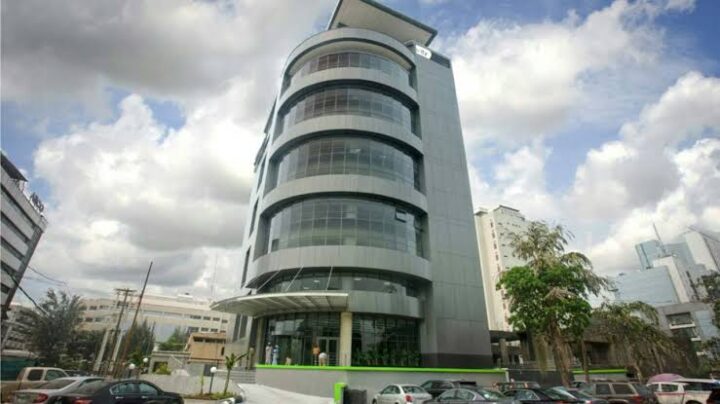Unity Bank Plc has reached a major milestone in its restructuring journey as shareholders officially approved its planned merger with Providus Bank Limited. The decision, endorsed at an extraordinary general meeting held in Lagos, marks a new chapter in Nigeria’s banking sector, signaling one of the most significant consolidation moves in recent years.
The merger is designed to strengthen Unity Bank’s financial position, enhance operational efficiency, and create a more robust financial institution capable of competing effectively in Nigeria’s increasingly competitive banking landscape. By joining forces with Providus Bank, Unity Bank aims to improve its balance sheet, expand its product offerings, and broaden its customer base across retail, corporate, and digital banking segments.

During the meeting, shareholders expressed confidence that the transaction would deliver long-term value. They noted that the partnership would not only provide Unity Bank with fresh capital injection but also help stabilize its operations, which have faced challenges in recent years due to rising non-performing loans and capitalization pressures.
Unity Bank’s Board explained that the merger is in line with the Central Bank of Nigeria’s (CBN) recapitalization directive, which requires commercial banks to meet higher minimum capital thresholds to strengthen the industry. For Unity Bank, which has long struggled to maintain capital adequacy ratios, the merger represents a strategic lifeline. The transaction is expected to ensure regulatory compliance while positioning the bank for sustainable growth.
Providus Bank, a younger but fast-rising financial institution, has built a strong reputation for innovation, customer-centric solutions, and digital transformation in banking. Analysts believe that its integration with Unity Bank will bring fresh energy, stronger technological capabilities, and more efficient systems into the combined entity. This synergy is projected to enhance service delivery, expand lending capacity, and attract new customers, particularly among SMEs and high-net-worth clients.
The deal is also expected to create a larger financial powerhouse with improved profitability prospects. With a stronger capital base, the merged bank will be better equipped to finance big-ticket projects, support Nigeria’s real sector, and compete with Tier-1 banks that dominate the market. Industry observers believe that this consolidation could set the stage for further mergers and acquisitions in the sector, especially as other banks also race to meet the new recapitalization requirements.
Shareholders of Unity Bank welcomed assurances from the management that their interests would be protected in the merger arrangement. They were informed that shareholding structures, valuation details, and exchange ratios would be transparently handled to ensure fairness. Management also promised that the merger process would prioritize employee welfare, customer satisfaction, and regulatory compliance.
Industry experts have noted that this merger could mark a turning point for Unity Bank, which has been grappling with performance challenges over the past decade. Its struggles with capital adequacy and asset quality have limited its ability to compete with peers. The tie-up with Providus Bank, however, presents an opportunity for Unity Bank to reinvent itself and return to profitability.
Market analysts say the consolidation reflects broader trends in Nigeria’s financial sector, where weaker banks are seeking partnerships with stronger institutions to remain viable in a challenging operating environment. Rising inflation, exchange rate volatility, and tighter regulatory requirements have forced banks to rethink their strategies, with mergers emerging as a viable option to achieve stability and growth.
The merger is also likely to benefit the Nigerian banking public. Customers can expect improved access to credit, expanded digital platforms, and more innovative banking products. SMEs, in particular, stand to gain from Providus Bank’s strong record of supporting entrepreneurial ventures and Unity Bank’s extensive branch network that spans across the country.
The approval by Unity Bank’s shareholders now paves the way for final regulatory endorsement by the Central Bank of Nigeria, the Securities and Exchange Commission, and other relevant authorities. Once completed, the merger will create one of Nigeria’s largest mid-tier banks, with stronger capacity to support national economic growth.
For the Nigerian economy, the development is seen as a welcome move. A stronger Unity-Providus entity is expected to deepen financial inclusion, stimulate credit flow to the real sector, and reinforce confidence in the banking industry. Stakeholders believe that the new institution could play a critical role in financing agriculture, manufacturing, infrastructure, and other key sectors.
In conclusion, the Unity Bank–Providus Bank merger stands as a landmark consolidation effort that reflects the ongoing transformation of Nigeria’s financial services sector. For Unity Bank, it represents a fresh start; for Providus, it’s an opportunity to scale faster. Together, the two institutions are poised to build a stronger, more innovative bank that can deliver sustainable growth, create shareholder value, and contribute meaningfully to Nigeria’s economic development.
Support InfoStride News' Credible Journalism: Only credible journalism can guarantee a fair, accountable and transparent society, including democracy and government. It involves a lot of efforts and money. We need your support. Click here to Donate
